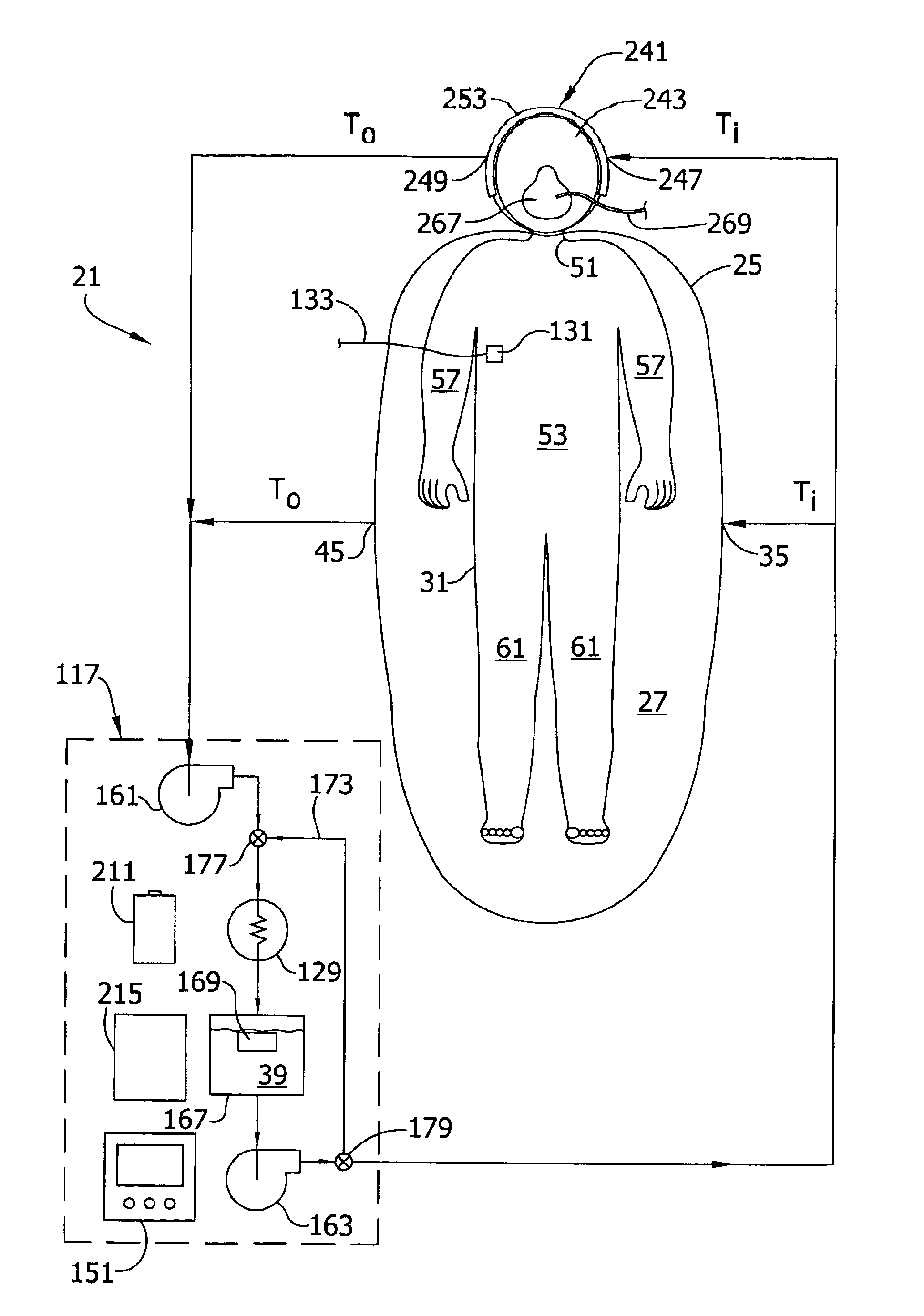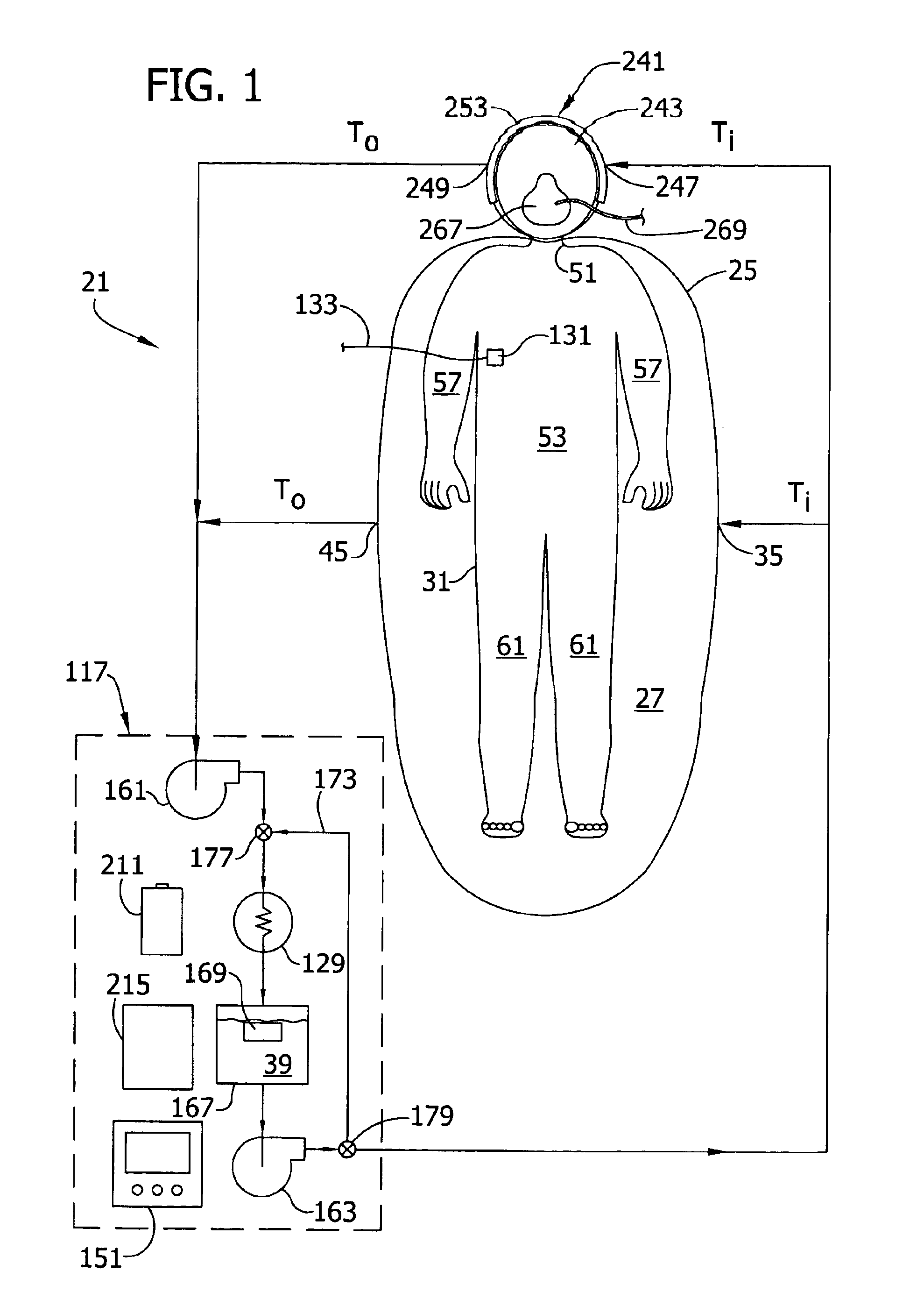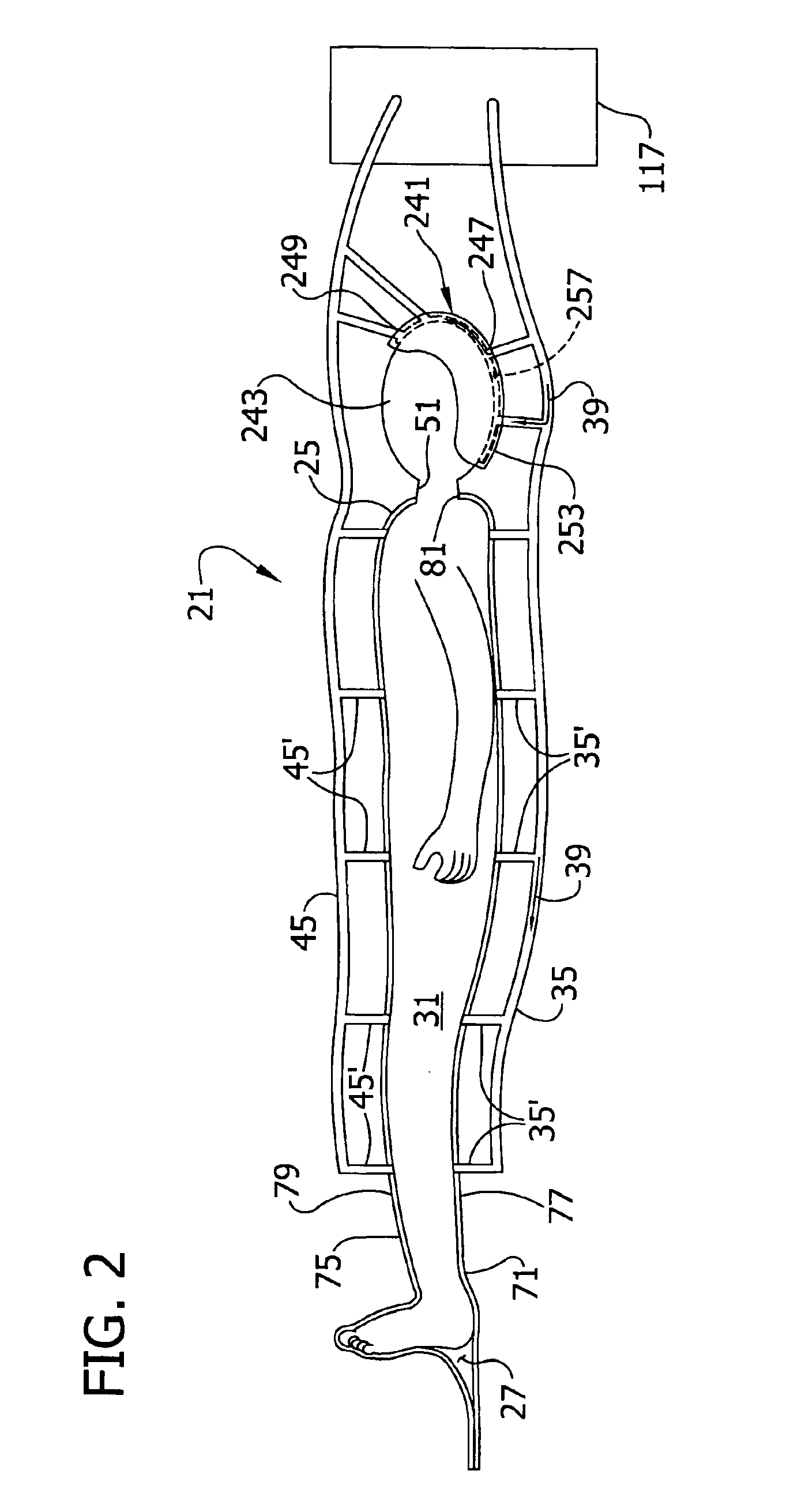Apparatus for altering the body temperature of a patient
a technology patient, which is applied in the field of medical equipment for altering the body temperature of patients, can solve the problems of invasive approaches that have obvious disadvantages in dealing with out-of-hospital emergencies, suffer from sudden cardiac arrest, and bore intravascular catheters, so as to reduce the time required, induce hypothermia, and control the warming of the patien
- Summary
- Abstract
- Description
- Claims
- Application Information
AI Technical Summary
Benefits of technology
Problems solved by technology
Method used
Image
Examples
example 1
Swine Packed in Ice
[0062]The first example studied the effect of total encasement of an animal, here a swine, in ice. This study was conducted in view of recent clinical reports suggesting that cooling gel packs work reasonably well. The study was done by placement of approximately 45 kg (100 pounds) of ice in 2.3 kg (5 pound) plastic bags both under and around the swine. Swine body temperatures and vital signs were then monitored over time, and the ice was removed when the observed core body temperature had dropped from about 34.5° C. (94.1° F.) to about 28.8° C. (83.8° F.).
[0063]More specifically, a first swine having a mass of 36 kg (79 pounds) was anaesthetized with Telazol®, a federally registered mark of A.H. Robins Co. of Richmond, Va., U.S.A., and zylazine. The hair of the swine was also clipped. The swine was then instrumented with an electrocardiogram (ECG) via conventional pads for electrically monitoring its heart rhythm during the experiment and a respirator for maintai...
example 2
Swine in Enclosure with Liquid Flow
[0065]In the second example, a second swine was enclosed in a prototype enclosure of apparatus of the present invention, generally as described above. The apparatus was used to cool and re-warm the animal several times over a period of several hours. The enclosure was operated in one of two ways, with water, as the heat transfer liquid, flowing from the top to the bottom of the enclosure or with water flowing oppositely, bottom to top. Pumping water into the interior space at the top of the enclosure and then out of the interior space at the bottom generated a positive gage pressure within the interior space of the enclosure. Pumping water into the interior space at the bottom of the enclosure and then out of the interior space at the top of the enclosure generated a sub-atmospheric pressure, or partial vacuum, within the interior space of the enclosure. In this mode, the enclosure becomes more conformal to the body and allows for a smaller amount ...
PUM
 Login to View More
Login to View More Abstract
Description
Claims
Application Information
 Login to View More
Login to View More - R&D
- Intellectual Property
- Life Sciences
- Materials
- Tech Scout
- Unparalleled Data Quality
- Higher Quality Content
- 60% Fewer Hallucinations
Browse by: Latest US Patents, China's latest patents, Technical Efficacy Thesaurus, Application Domain, Technology Topic, Popular Technical Reports.
© 2025 PatSnap. All rights reserved.Legal|Privacy policy|Modern Slavery Act Transparency Statement|Sitemap|About US| Contact US: help@patsnap.com



